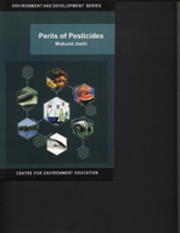5 - Pesticide Consumption Scenario
Published online by Cambridge University Press: 26 October 2011
Summary
Prior to 1940, the consumption of pesticides was negligible and restricted to a few inorganic pesticides. During World War II, large-scale use of synthetic pesticides began with the invention of DDT. Since then, the consumption of pesticides has increased steadily.
Global Scenario
An estimated 4.5 million metric tons of pesticides are consumed in the world annually to protect crops and meet the demands of public health. Globally, nearly 45 per cent of the total pesticides used consists of herbicides (weedicides) while 30 per cent consists of insecticides. Fungicides and other pesticides account for 20 per cent and 5 per cent respectively.
Out of the total pesticides consumed in the world, as much as 72 per cent is used in the USA, Europe and other developed countries, while all the developing countries together consume only 28 per cent. Asia, Africa and Latin America consume 12, 4 and 8 per cent respectively. This uneven consumption pattern shows that perils caused by pesticides are also of different proportions in different parts of world.
Globally, vegetables and cereals are protected by using as much as 26 and 37 per cent respectively of the total pesticide consumption. Among the cereals, maize and rice consume 12 per cent and 10 per cent, while cotton and soybean use 9 per cent and 10 per cent of the total pesticide consumption.
- Type
- Chapter
- Information
- Perils of Pesticides , pp. 29 - 42Publisher: Foundation BooksPrint publication year: 2005

